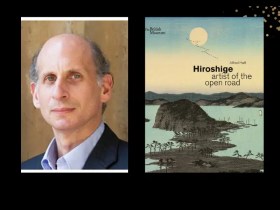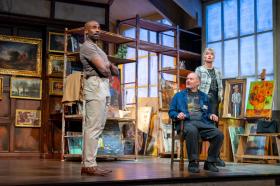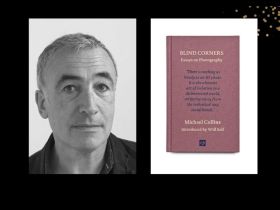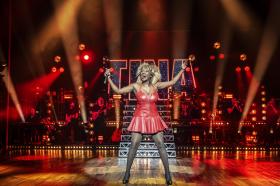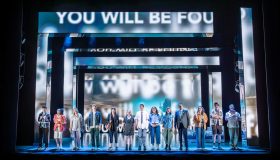What if we in the arts are the people standing between the fall and survival of a civil society? And what if the only way to save that society is—imperilled as we are—to disengage entirely from the economic model that brought us to this brink?
We talk about our humanising role, but what if we had to prove it for real as Jedi art warriors on the verge of the apocalypse. In place of lightsabers and droids we have glow tape and musical instruments, story and song and the force of our imagining.
For a few years now, arts advocates have been trying to find a way out of the economic arguments we got tangled in, trying to justify arts funding. We sang the old theatre-as-stimulation-package song: ‘The arts bring four bajillion dollars to our city every year because crazy numbers of people attend arts events, and all of ’em gotta eat.’
Probably the most profound exit strategy from the grip of such arguments has been Theatre Bay Area’s “intrinsic impact” study led by Wolf/Brown, and published as the many-voiced Counting New Beans. This work, tries to find the most apt language for describing what the theatre actually does to and for a person. Artistic impact on its own terms, and not in its marketplace translation.
These efforts mark an important fork in the road, but a complicated one. We are still trying to justify, still reacting to the economy, still training our hopeful, desperate gaze on the same funders and ticket buyers. We are still—excuse the melodramatic turn of phrase—enslaved to an economic system designed to serve the accumulation of wealth rather than the wealth of our humanity.
I look to artists for answers. They lead us through the unknown and into the future, so there’s no better help in a crisis of the soul
Nowhere does one feel this more powerfully than in a university, where the push for our students to become specialized, labor-force-ready, job seekers is strangling the humanities and social sciences, whose numbers of majors are in precipitous decline, threatening the arts, and making that gorgeous pairing “liberal arts” sound like something out of Chaucer. Whoever he was. Novelist Marilynne Robinson puts it succinctly in her recent Harper’s essay, Save Our Public Universities. “The Citizen has become the Taxpayer.” This is what I hear when arts administrators talk about the “nonprofit sector.” I hear the triumph of market speak over the passionate, devotional, righteous, metaphoric language of art.
Robinson spells it out: “Poetry, eloquence, memory, wit, the fires of imagination, the depth of thought: these are mentioned as rarely now as the object or effect of education as ‘the natural grandeur of man’ is mentioned as a basis of our culture or politics.” And without these things—poetry, eloquence, memory, wit, imaginative fire, and the rest—not to mention brilliance and grandeur, we are reduced to what the brilliant Robinson calls, “plume-plucked humankind.”
Every generation as it ages issues Jeremiads decrying the rise of everything horrible and predicting the end of the world. I know that by proclaiming a crisis of soul and warning against threats to character, self, and imagination I sound like an old fart, somebody’s papa’s preacher. I don’t believe in fire and brimstone raining down, though, and working with playwrights for so long and with theatre students, I still believe that the work of wonder will find its future.
But we serve the arts, and art requires noticing, opening our eyes and questioning what we see. We open our eyes and see politicians inciting mob violence. We open our eyes and see the mass incarceration and normalized murder of black citizens. We watch states rolling back the rights of women over their own bodies, legislating discrimination based on how people love and self-identify, boosting profits at the devastating expense of our planet, refusing to control weapons of mass slaughter because it’s carried out by white guys.
However narrowly we define our missions, we don’t just serve a field; we serve a world. And this is the world we live in now. However narrowly we define our charge, however well-intentioned our aims, we are part of a system that defines success by market worth and utility, in which the labor of many feeds the earnings of very very few. Do we continue to serve it—in the Latin sense of slavery—do we change it, or do we, somehow, leave it?
A civilization is judged by what it does and by what it makes. It is judged at the extremes: the best and worst of what it does and the best and worst of what it makes. I’m consoled by Marilynne Robinson’s reminder that “The badness of the worst we do does not diminish the goodness of the best we do.”
If this is true, how do we enhance that goodness? I believe some of the best we do happens in rooms where art is made and shared. This is true whether those rooms are experimental incubators, community-based gathering spaces, or places where tradition is honored and examined. I spend as much of my life as I can in those rooms and, because the best of our humanity is on display there, I look to artists for answers. They lead us through the unknown and into the future, so there’s no better help in a crisis of the soul.
Read: Todd London’s Eight arts lessons to save our souls
This article is an edited extract from the keynote address delivered at the Association of Performing Arts Service Organizations in the US and published on HowlRound.

